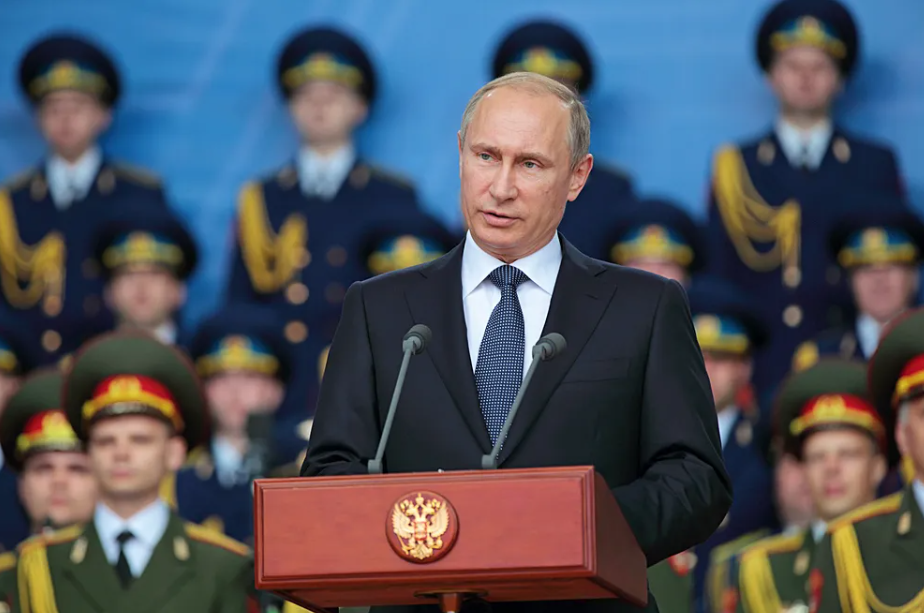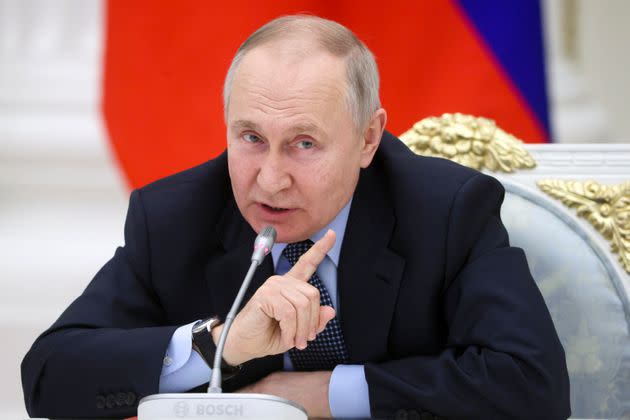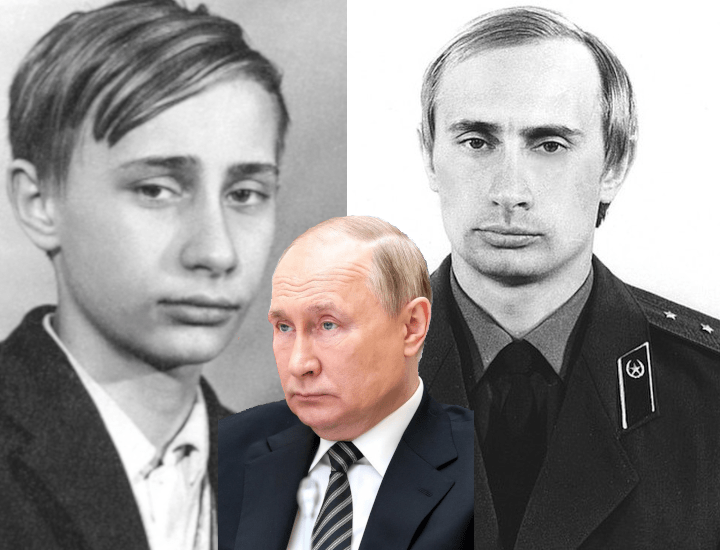Who is Vladimir Putin?
Vladimir Putin is a prominent figure in Russian politics, having served as president of Russia from 1999 to 2008 and from 2012 to the present. Prior to his political career, he worked as a Russian intelligence officer and held various positions in the KGB, the foreign intelligence and domestic security agency of the Soviet Union.
Did Vladimir Putin serve in the KGB?
Vladimir Putin’s career began in the KGB, where he served as a foreign intelligence officer for 15 years. He eventually retired from active KGB service in 1990, having attained the rank of lieutenant colonel.
Why is Vladimir Putin still in power?
Initially limited by Russia’s constitution to two consecutive terms as president, Vladimir Putin temporarily served as prime minister after completing his second term in 2008. However, in 2020, a constitutional amendment was approved that allowed him to extend his presidency for two additional terms, enabling him to remain in power.

How has Vladimir Putin influenced Russia?
During his extensive tenure as Russia’s leader, Vladimir Putin has exerted significant influence on the country. He has transformed Russia into an autocratic state, shifting away from its earlier democratic aspirations. Putin has also expanded Russia’s global presence, particularly in the Middle East, and forged stronger ties with China. Notably, he has demonstrated a willingness to use military force to achieve his objectives, such as the annexation of Crimea in 2014 and the large-scale invasion of Ukraine in 2022.
What led to Vladimir Putin’s attack on Ukraine in 2022?
The background to Vladimir Putin’s military intervention in Ukraine in 2022 can be traced back to Ukraine’s efforts to integrate with Europe following the collapse of the Soviet Union. When pro-Russian Ukrainian President Viktor Yanukovych attempted to reverse this trend in 2014, widespread protests ousted him from power. Seizing the opportunity, Putin ordered the annexation of Crimea and supported separatist movements in eastern Ukraine. Tensions continued to escalate, and in 2022, Russian forces invaded Ukraine following a buildup of troops along the border, initiated by Putin’s announcement of a “special military operation.”

Vladimir Vladimirovich Putin, widely recognized as the president of Russia, has led a dynamic and influential political career, leaving a lasting impact on the nation and the world. From his early days as a KGB intelligence officer to his current fourth presidential term, Putin has navigated through significant events such as the Salisbury novichok attack, his relationship with former US President Trump, constitutional changes, and the Russian invasion of Ukraine. This article delves into Putin’s journey, highlighting key milestones and their implications on Russia’s political landscape and global affairs.
Also Read: Donald John Trump – Businessman, Television Personality, and 45th President of the United States
Putin’s Fourth Presidential Term and International Relations:
As the March 2018 presidential election approached, it became apparent that Putin would secure a fourth term with a significant margin. However, the election was not without controversy, as opposition figures were barred from running, and there were reports of irregularities. The campaign was overshadowed by the Salisbury novichok attack, where former Russian intelligence officer Sergei Skripal and his daughter were found unconscious in England. The incident strained Russia’s relationship with the UK, leading to the expulsion of Russian intelligence operatives.
During this time, Putin also engaged with former US President Trump. Their first formal one-on-one meeting took place in Helsinki in July 2018, following Trump’s contentious interactions with traditional US allies in Europe. The summit drew international attention as Trump expressed trust in Putin’s denial of Russian interference in the 2016 US presidential election, contrary to his own intelligence agencies’ conclusions. Trump’s comments sparked criticism and further strained US-Russia relations.
Constitutional Changes and Navalny Poisoning:
In January 2020, Putin announced his intention to modify the Russian constitution to remove presidential term limits, potentially allowing him to remain in power indefinitely. The proposed changes received swift approval from the Russian legislature, followed by a national referendum that overwhelmingly supported Putin’s agenda. However, opposition groups raised concerns about the lack of independent monitoring during the vote.
In August 2020, prominent opposition figure Alexei Navalny fell seriously ill after being exposed to a novichok nerve agent. Navalny was later flown to Germany for recovery, and subsequent local elections in areas where he had campaigned saw surprising success for opposition candidates. While the Kremlin denied involvement in the poisoning, the incident added to a series of attempts on the lives of Putin’s critics, raising doubts about the Kremlin’s credibility.

The Russian Invasion of Ukraine:
In late 2021, Putin ordered a significant buildup of Russian forces near the Ukrainian border, raising concerns of an imminent invasion. Despite Putin’s denials, by February 2022, a large number of Russian troops were stationed along the border and in occupied territories. On February 24, Putin recognized the independence of self-proclaimed republics in Donetsk and Luhansk, violating the 2015 Minsk peace agreement. The invasion began, but Russian advances were met with strong resistance from Ukrainian forces.
The conflict exposed numerous war crimes committed by Russian soldiers, including looting, sexual violence, and attacks on civilian infrastructure. As the war continued, Putin faced growing international condemnation and economic sanctions. Western support for Ukraine intensified, with the European Union granting Ukraine candidate status and NATO demonstrating solidarity. Despite initial expectations, Putin’s military campaign faced significant challenges, diminishing Russia’s international standing and straining its economy.
Vladimir Putin’s rare and interesting unknown facts

=> Vladimir Putin has a black belt in judo, making him one of the few world leaders with such a high level of martial arts expertise.
=> He is known for his love of animals and has been photographed interacting with various creatures, including tigers, dolphins, and polar bears.
=> Putin is fluent in several languages, including Russian, German, and English.
=> He has a passion for classical music and can play the piano.
=> Putin’s favorite book is “The Master and Margarita” by Mikhail Bulgakov, a classic Russian novel.
=> He once appeared in a cameo role in a Russian action film called “The Vow of Silence” in 2001.
=>Putin has a reputation for being physically fit and has been photographed engaging in various sports, such as ice hockey and horseback riding.
=> He is a skilled pilot and has been known to fly military aircraft, including fighter jets.
=> Putin has a collection of luxury watches and is often seen wearing timepieces from prestigious brands like Patek Philippe and Blancpain.
=> He has a deep interest in Russian history and is known to frequently visit historical sites and museums.
=> Putin has a black Labrador Retriever named Konni, which he received as a gift from the Russian Defense Ministry.
=> He is an avid supporter of Russian sports and has actively promoted the country’s athletes on the international stage.
=> Putin has a close relationship with the Russian Orthodox Church and has been seen attending religious services and participating in rituals.
=> He has a reputation for being an efficient multitasker and is often reported to be working long hours.
=> Putin enjoys outdoor activities, such as fishing and hunting, and has been photographed engaging in these pastimes.
=> He has a fondness for Russian-made cars and is often seen driving models from brands like Aurus and Lada.
=> Putin’s favorite meal is reportedly traditional Russian cuisine, with dishes like borscht, pelmeni (dumplings), and stroganoff being among his favorites.
=> He has a judo training hall named after him in St. Petersburg, Russia, called the “Putin Judo Club.”
=> Putin is known for his distinctive fashion sense and is often seen wearing tailored suits, often paired with unique accessories like large wristwatches.
=> He has been the subject of numerous internet memes and parodies, contributing to his global recognition beyond his political career.
Conclusion:
Vladimir Putin’s leadership journey has been marked by pivotal moments that have shaped Russia’s political landscape and influenced global affairs. From his fourth presidential term, international relations with the US under Trump, constitutional changes, to the Russian invasion of Ukraine, Putin has faced numerous challenges and controversies. While his actions have garnered both support and criticism, the consequences of his decisions continue to impact Russia and the world. As Putin’s leadership continues, it remains to be seen how he will navigate the complex political landscape. The international community closely watches his actions and their implications for global relations. The events discussed in this article provide a glimpse into the multifaceted nature of Putin’s leadership and the challenges he faces both domestically and internationally.
Moving forward, Putin’s decisions will shape Russia’s trajectory and its position on the world stage. The global community will continue to assess his policies, actions, and their impact on issues such as democracy, human rights, and geopolitical stability. As Russia moves through this pivotal period, the consequences of Putin’s leadership will reverberate for years to come.